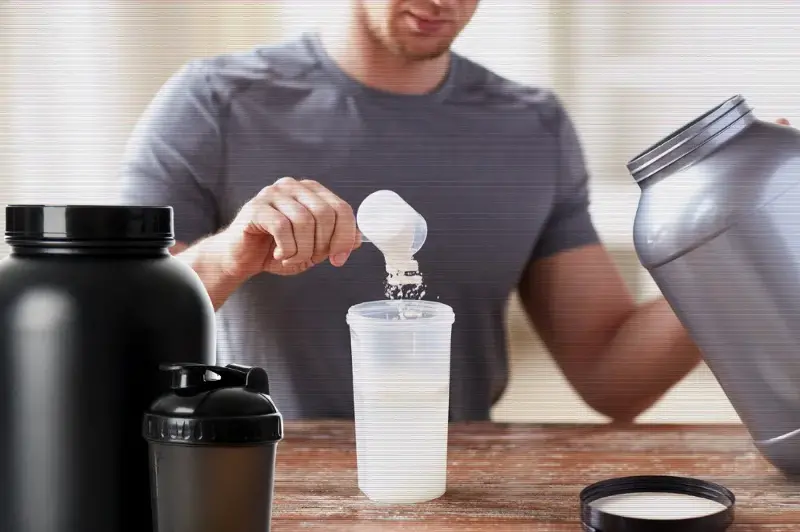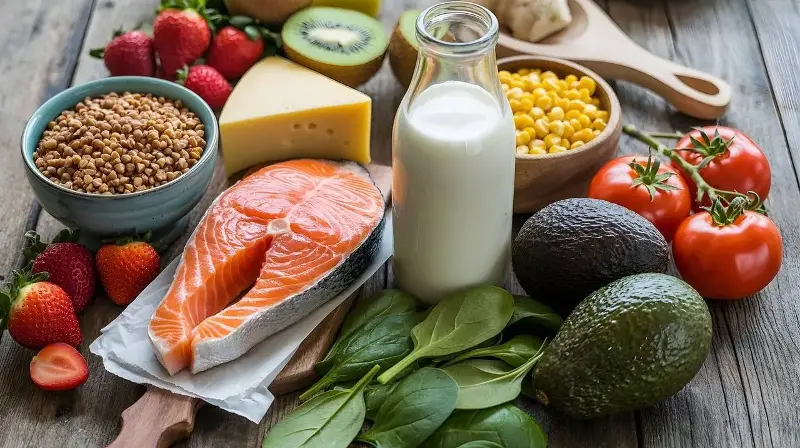
IF social media is to be believed, the secret to glowing skin, a sculpted body and endless energy can be found in one thing, a protein shake.
From sleek gym-goers sipping matcha-infused blends to influencers showing off their "morning shake rituals", protein powders have become the new must-have accessory in the wellness world. But are these drinks really as necessary as they seem?
Avisena Women’s and Children’s Specialist Hospital clinical dietitian Syafiqah Zainal said they might not be.
"Actually, we don’t need protein supplements if we eat a well-balanced diet.
"A well-balanced meal means having carbohydrates, protein, vegetables and one serving of fruit on your plate. This kind of meal is balanced and you can get enough protein from it," she said when contacted recently.

To define "enough protein," she highlighted that a single serving could look as simple as a piece of ikan kembung, a palm-sized portion of chicken, two eggs or two pieces of tempeh.
"Protein supplements are usually needed by people who are ill, elderly, or at risk of malnutrition," she added.
While some protein drinks do offer genuine nutritional benefits, particularly for athletes or people with higher protein requirements, many are simply overhyped.
Syafiqah said that many protein shakes and similar drinks are marketed more for trends and branding rather than actual nutritional needs.
She stressed that people who already consume enough protein from natural food sources such as meat, eggs, tofu or legumes generally do not require costly supplements.
She added that one of the most common misconceptions is believing that drinking protein shakes will automatically result in weight loss or muscle gain.
According to her, protein shakes should be viewed as supplements, not as magical solutions for fitness or health goals.
"For weight loss, people often use shakes as meal replacements, but not all are nutritionally complete.
"For muscle gain, they only work when combined with resistance or weight training. Without exercise, that extra protein won’t turn into muscle," she said.
She also cautioned against the belief that more protein means better results.
"Our bodies can only use a certain amount. Excess protein won’t make you stronger or slimmer, it can just be stored as fat or excreted," she added.
When choosing a protein supplement, she advised paying close attention to the type and source.
"Check whether it’s whey, casein, soy or plant-based and choose one that suits your digestion and needs.
"Always look for trusted brands that are certified and backed by clinical research. Be cautious of unregulated or overly hyped products sold online," she stated.
She also cautioned against overconsumption, noting that taking excessive amounts of protein, especially when it isn’t needed, can lead to side effects such as kidney strain, digestive problems or unwanted weight gain.
Syafiqah said that for most healthy individuals, it is best to meet their protein requirements through food and only use supplements when truly necessary.
At the end of the day, the secret to a healthy body may not come in a jar of powder but about balance, informed choices and professional guidance.
True wellness comes from understanding your body’s needs and seeking expert advice before adding any supplements to your routine.
